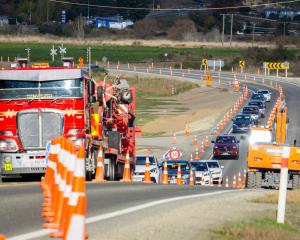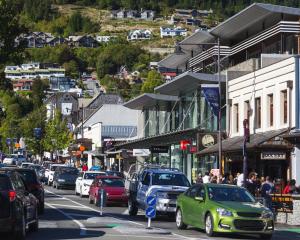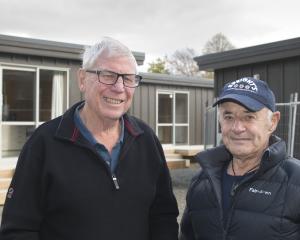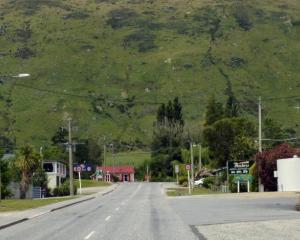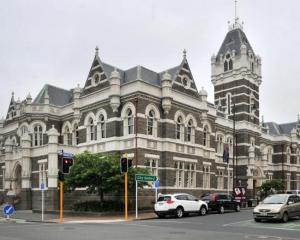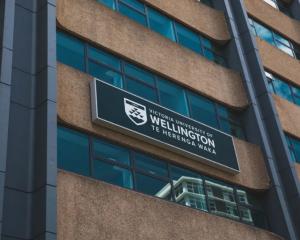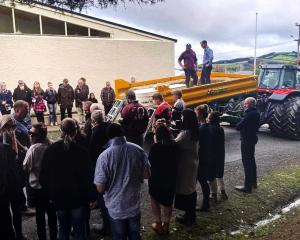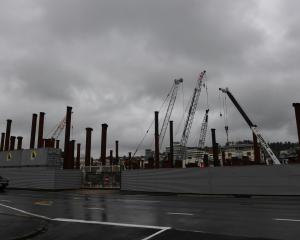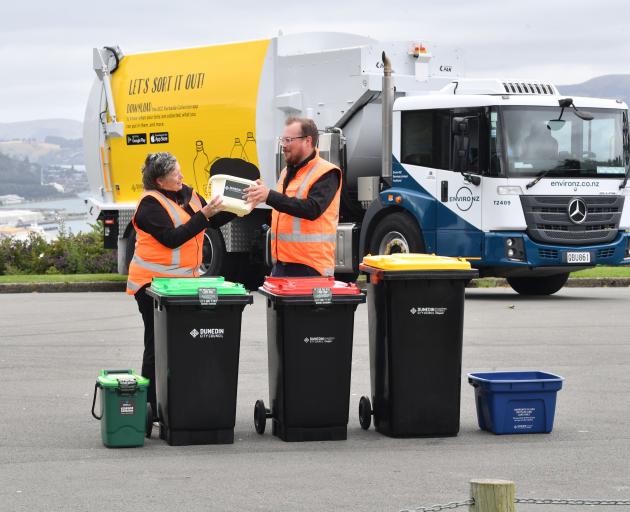
Facing the prospect of mounting debt and that Dunedin City Council rates could rise on average 17.5%, Dunedin Mayor Jules Radich made a mysterious pronouncement.
He had started his speech predictably enough, identifying a budgeting backdrop of uncertainty, inflationary pressures, interest rate rises, cost-of-living "confrontations" and the lingering influence of the Covid-19 pandemic.
He explained the council had deferred its long-term plan by a year, and was instead pursuing just an annual plan for 2024-25, because of an unclear path ahead for its two largest expenditure categories — Three Waters and transport — following the change of government.
"But on the other side of the ledger, we are developing an investment plan, so that council can achieve long-term sustainability, because we cannot keep increasing debt year after year," Mr Radich said.
"We need to turn the corner and start paying it down to ensure our future viability.
"Until the details of our investment plan are determined, we will have uncertainty of ongoing income."
Noting the mayor had talked about working towards long-term financial sustainability, Cr Lee Vandervis said "if that’s case, it’s very, very long term".
"We haven’t worked towards it fast enough and we keep spending money that we haven’t got, in the face of vastly increased interest costs.
"I see a stampede into debt ... the group debt — which is our companies and us ... is going to go from $1 billion to $1.5b within the next two years.
"I don’t believe that it’s possible for us to carry on in this way."
Cr Brent Weatherall agreed the situation ahead with debt needed to be dealt with.
Deputy mayor Cherry Lucas said she was looking forward to an investment plan being produced. The council could not continue to post deficits and persist with "borrowing and borrowing with no plan to repay".
Discussion at the March 12 meeting was, of course, broader than this — ranging from the need to keep investing in infrastructure and prepare for growth to providing services expected by the community and passing on costs imposed by central government — but what was this investment plan being talked of?
Just before breaking for lunch, the council voted for the next part of the meeting to be non-public, because of commercial sensitivity about an item labelled "potential sale". Mr Radich was conscious there would be visitors about 1pm.
"Now, we have the directors for ... " — there was then rapid shhhh-ing.
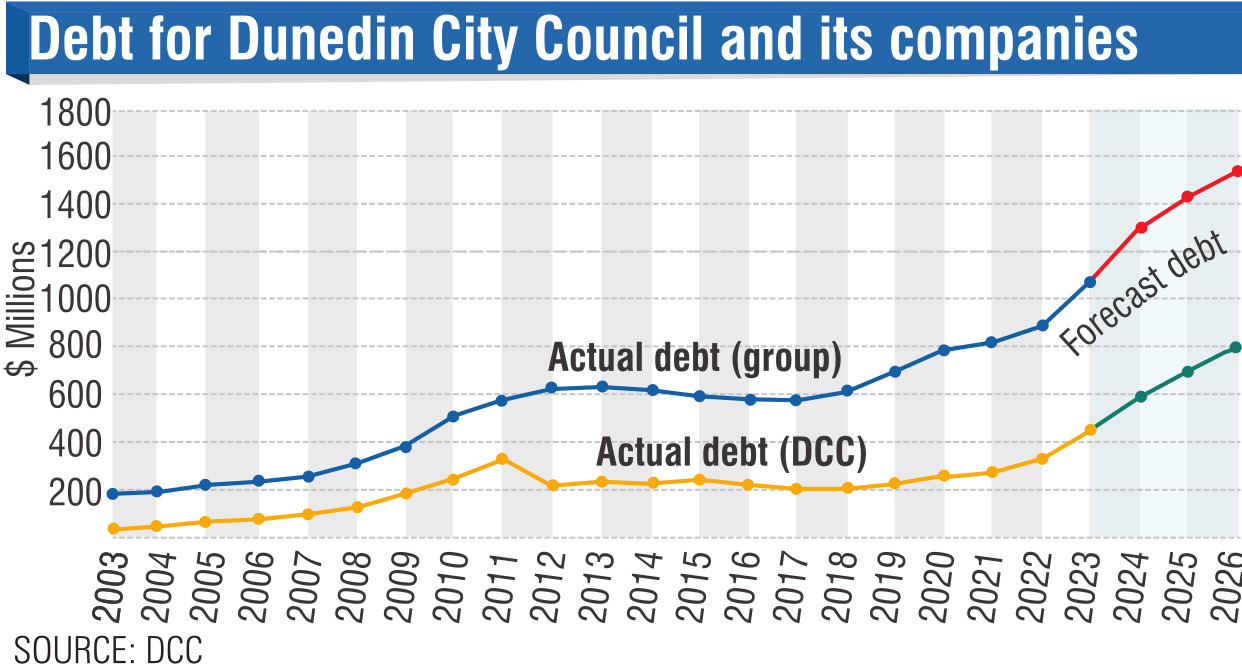
Council-owned DCHL owns seven companies — including Aurora Energy, City Forests, Delta Utility Services and Dunedin Railways — and it has a 50% share in Dunedin Airport.
Discussion of the subject at hand lasted the rest of the day.
Cat escapes bag
On March 14, the news was out — the city council had decided to pitch to the public a possible sale of Aurora.
"When our council announced the proposed 17.5% rates increase for 2024-25, I also said we were looking for alternative revenue streams to put our city on a more sustainable path," Mr Radich said in a statement.
"Council wants our commercial investments to produce higher, more consistent and sustainable returns for the city and to achieve this we need the right mix of assets.
"A sale of Aurora, and the reinvestment of many hundreds of millions of dollars into a new diversified investment fund, would be an important step in this direction."
To be clear, a sale of Aurora would not affect the rates rise proposed for 2024-25. If the call is made to press ahead, it would be marketed for sale in the second half of this year.
Aurora Energy owns and operates the electricity distribution networks for Dunedin, Central Otago and Queenstown Lakes. It has more than 94,000 customer connections and owns poles, lines and equipment that distribute power from Transpower’s national grid.
Key issues for the council include lack of dividends from the company in recent years — a situation unlikely to change in the next decade, unless dividends are debt-funded. Lack of room for dividends is influenced by expectations the company needs to continue with a substantial capital programme.
Aurora’s network was largely built in the 1950s and ’60s. The council’s consultation material noted the network required ongoing renewal and development to meet growing electricity demand, but "over the intervening decades and prior to 2017, investment was kept lower than was required, which led to deterioration of asset condition and a backlog of renewal work".
Aurora has not paid the council dividends since 2017.
It has been working under a Commerce Commission five-year price plan since April 2021, and this was designed to limit how much Aurora could claw back from customers while it modernised the network.
In the works
How long has a possible sale been brewing?
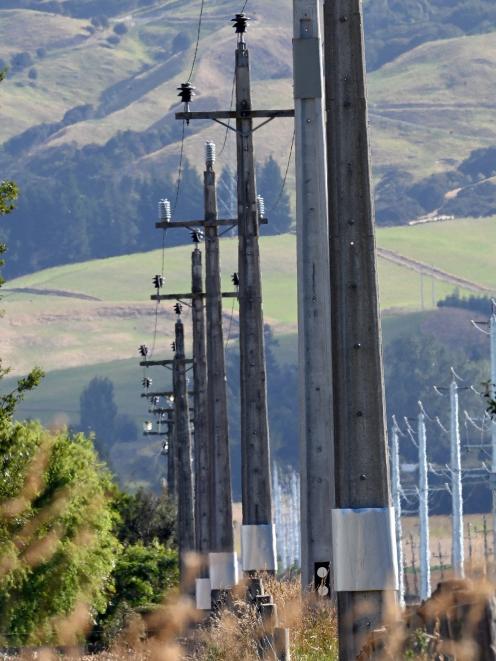
"This should also include an assessment of historic performance to relevant benchmarks and what this context means for expected future performance."
As Cr Sophie Barker noted in a meeting last week, DCHL concluded there was a compelling case to sell Aurora, and the council was required to take this seriously.
Indeed, DCHL went further than this, advising the advantages of selling Aurora "far outweigh" the advantages of keeping it. DCHL also advised now was a good time to sell to realise a price premium.
Aurora’s debt is projected to be about $576 million by mid-2025 and this would need to be paid down after any sale, but the expectation is what is left over to form the base of a diversified investment fund would be much larger than the existing Waipori Fund, which is worth about $100m.
Sale or no sale, the council is due to work on a plan for all its investments as part of its nine-year 2025-34 long-term plan process.
Counter-arguments on the merits of a sale of Aurora include that a higher price could be obtained later. The perceived strategic value of the company is another issue, as well as suspicion a new owner might be tempted to "run to fail", as Cr Jim O’Malley put it. Customers worried about price rises may also be sceptical about protection offered by the Commerce Commission and Electricity Authority.
The council has yet to determine what a minimum price might be for Aurora’s sale — it first wants feedback from the public about whether a sale should happen — and what might be done with an investment fund’s income has yet to be settled. Possibilities include cushioning rates increases in future years, bringing an end to council deficits sooner, repaying debt sooner and borrowing less.
The council has its own escalating debt situation and substantial spending on water and wastewater networks and treatment plants has been anticipated for the decade ahead.
Financial forecasts showed estimated council debt could be at $706.5m by June 2025, which would be an increase of about $117.5m on the 2023-24 annual plan.
This brings us to the draft 2024-25 annual plan.
The Great Rates Wave
Why are budgets of New Zealand’s councils under such strain that double-digit proposed rates rises are common?
Analysis by Infometrics in February showed councils were facing some considerable capital cost pressures. Over the past three years, building costs for bridges were 38% more expensive, sewerage systems 30% more expensive and roads and water supply systems about 27% more expensive.
In Dunedin, one big driver of the proposed rates rise for 2024-25 is upgraded rubbish and recycling kerbside collection from July 1, when black plastic bags will be replaced by wheelie bins and separated collection starts for food scraps and garden waste. The service upgrade adds 4.4% to the total rating revenue needed by the council and is a one-off hit.
Rating examples produced by the council showed a residential property of average value within the city could have a rates rise of 19.1%. A property of equivalent value in an area not covered by kerbside collection might have a rates rise of 12.8%. That is because the service is covered by a flat targeted rate, set to rise from $106.10 to $301.50.
Targeted rates make up about 44% of the council’s rating revenue and general rates the remaining 56%. The general rates component is proposed to increase by about 13.1%.
A total rates rise of 17.5% would not be enough to cover all of the council’s operating expenditure and the council has signalled it could post a net deficit above $25m. Not all asset depreciation — an expense that has increased — would be funded. If it was, the rates rise could be 27.5%.
Interest costs were budgeted to increase by $6.1m, or 23.3%, reflecting an increase in debt funding required to support the planned capital expenditure programme.
Such a programme includes building the South Dunedin library and community centre, which has a $17.5m allocation in the property capital budget, and $5m for ongoing work on the Civic Centre.
Capital spending for Three Waters was budgeted at $80m.
Deferring the long-term plan has had all sorts of effects. They include deferring decision-making about the future of Dunedin Railways and what to do about theatre space. It was unclear at the March 12 meeting what would happen with the planned tunnels trail set to link Mosgiel to Dunedin and what the plan would be for destination playgrounds.
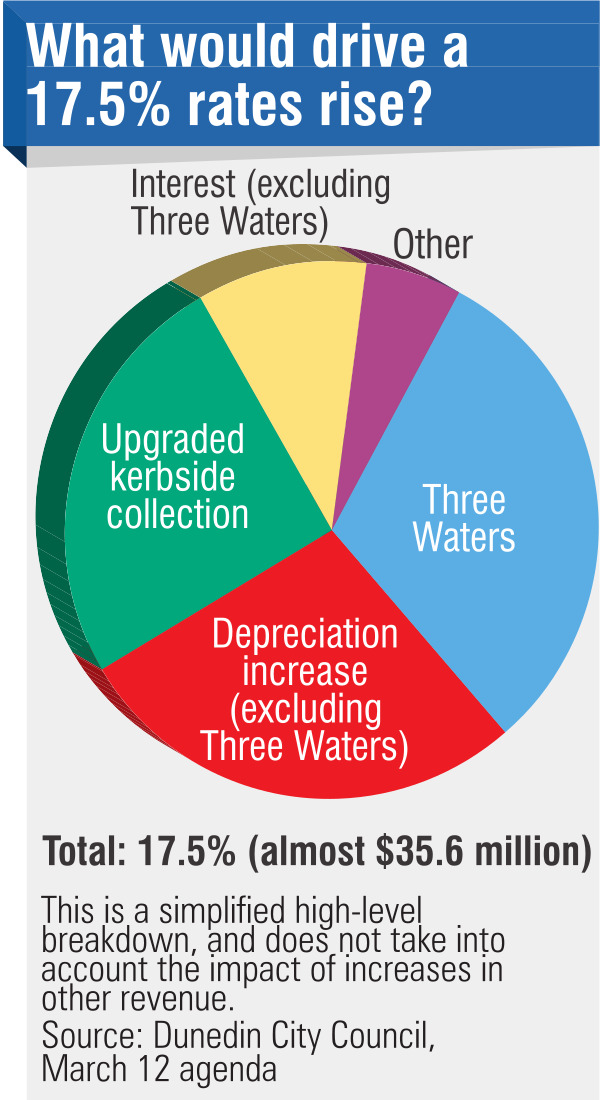
Cr Christine Garey shared Cr Walker’s concern, as "it’s not like the impact of climate change is taking a pause for a year".
She also ensured completion of the Otago Peninsula road widening and safety project — perhaps piece by piece — remained on the council’s radar.
The back story includes promises made when project sequencing was adjusted and Cr Garey now expected people would need to make submissions both to the upcoming annual plan and the nine-year plan next year to advocate for such commitments to be honoured.
Cr Barker was worried about the long-term plan deferral causing some funding and fees to fall out of their intended alignment, or making some things difficult to track.
"In a time of cost-of-living crisis we need to be like a householder and examine every bit of revenue and expense," she said.
On the positive side, it is expected more than 500 new rating units would share the burden of the total rates rise.
A matter of timing
The annual plan and potential sale of Aurora have been running as parallel processes.
Have they overlapped?
Cr Vandervis seemed to suggest so last week. He was content with the process for the potential sale of Aurora and added his only worry was the potential for the council to fritter away proceeds.
"My real worry is that we have already been frittering the proceeds and we really need to look seriously at how we change the trajectory of our current debt."
In his March 12 speech, Cr Andrew Whiley offered an alternative narrative, saying many around the table were positive about what needed to be done in the city — "what we need to get on and do".
In a follow-up email, Cr Whiley maintained a long-term lens.
"I believe it is important every councillor is focused around ensuring Dunedin has strong infrastructure, good transport connections, great community assets and the ability to grow the city and its liveability heading into the 2030s and beyond."
- Public consultation on both the draft annual plan and potential sale of Aurora Energy started on Thursday. It runs until noon on April 24 for the annual plan and noon on May 2 for Aurora.


